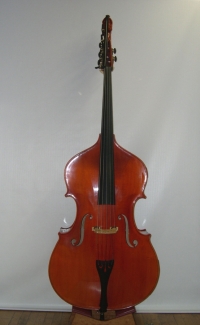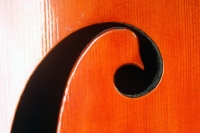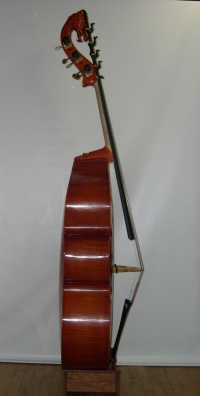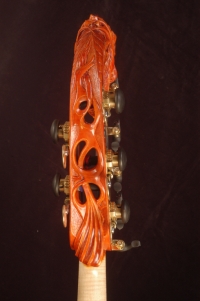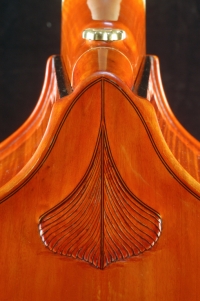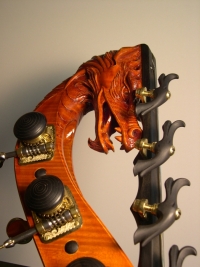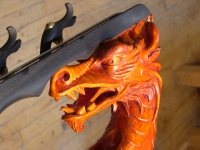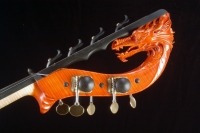Homage to the Viking people.
This 5-string double bass with a removable neck has an integrated Low C extension with 5 capos.
This instrument aestheticism is inspired from Viking people’s Art.
The dragon’s scroll is carved in the way to receive a Low C extension.
Traditionally, Norman boat heads were removable. In the same way, this double bass,
(this vessel), has a removable neck in order to travel easier by plane, into an aluminum rectangular box, and gives the possibility to travel in every airplane types without supplementary fees related to the proportions and weight (around 68 pounds). The neck comes apart and puts back in less than 10 minutes and a system holds back the soundpost so that it doesn’t move during the handling and transport.
The bottom back has a face view Norman boat, docked at the shore.
Pegs represent shields in the way of which Norman boat travelled, they are removable in order to be able to change strings as faster than one of a violin.
The opened peg box represents a personalize draw, zoomorphic reliefs that have been found on most of Norman boats.
Capos are carved with the same head that we see on the peg box
Materials : table top : Swiss spruce, ribs: big leaf maple, back : Quebec poplar, neck : flamed maple
Photographe: Jean Bruno

